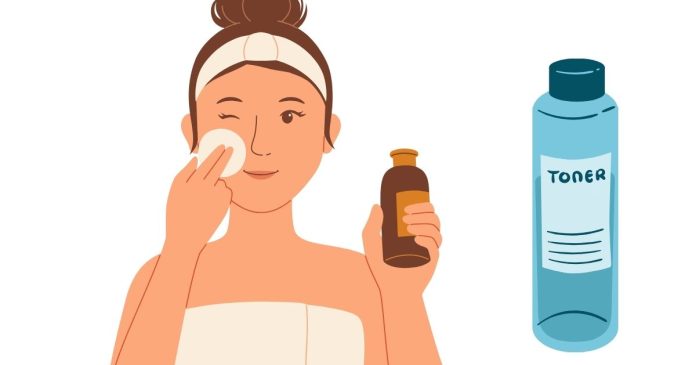The world of skincare can often feel overwhelming, with an array of products and routines promising radiant, youthful skin. Among these, one item that frequently sparks questions is skin toner. What is it, how does it work, and who truly benefits from adding it to their regimen? In this blog post, we’ll dive into the essentials of skin toner, debunk common misconceptions, and help you decide if it’s the right fit for your skincare routine.
What is Skin Toner?
Skin toner, often simply called toner, is a liquid skincare product designed to be used after cleansing and before moisturizing. Traditionally, toners were known for their astringent properties, often formulated to remove excess oil and tighten pores. However, modern toners have evolved significantly and now offer a wide range of benefits tailored to different skin concerns.
How Does Toner Work?
Toners are designed to balance your skin’s pH level, which can become disrupted after cleansing. The skin’s natural pH level is slightly acidic, usually around 5.5. Cleansers, especially those that are too harsh, can strip the skin of its natural oils and disturb this balance, leaving your skin dry, irritated, or overly oily. A good toner restores this balance, preparing your skin to absorb other skincare products more effectively.
Additionally, many toners are enriched with active ingredients that target specific skin concerns, such as hydration, acne control, or anti-aging.
Types of Skin Toners
There isn’t a one-size-fits-all toner. Depending on your skin type and concerns, you may benefit from different formulations. Here are the main types of toners:
- Hydrating Toners
- Ideal for dry or dehydrated skin.
- Often formulated with humectants like glycerin or hyaluronic acid to lock in moisture.
- Exfoliating Toners
- Contain chemical exfoliants like alpha hydroxy acids (AHAs) or beta hydroxy acids (BHAs).
- Suitable for those dealing with dullness, uneven texture, or acne.
- Soothing Toners
- Designed for sensitive or irritated skin.
- Often contain calming ingredients like chamomile, aloe vera, or calendula.
- Clarifying Toners
- Target oily or acne-prone skin.
- May include ingredients like salicylic acid, witch hazel, or tea tree oil.
- Brightening Toners
- Formulated to address pigmentation and dullness.
- Ingredients like vitamin C or niacinamide are common in these toners.
Who Benefits from Using Skin Toner?
The benefits of toner depend on your skin type and the specific formulation of the product you choose. Here’s a breakdown of how different skin types can benefit:
- Oily or Acne-Prone Skin
- Toners with exfoliating or clarifying properties can help control excess oil, unclog pores, and prevent breakouts.
- Ingredients like salicylic acid, witch hazel, or niacinamide are particularly helpful.
- Dry or Dehydrated Skin
- Hydrating toners are a game-changer for people with dry or dehydrated skin, as they provide an extra layer of moisture.
- Look for ingredients like hyaluronic acid or aloe vera to soothe and hydrate.
- Sensitive Skin
- People with sensitive skin benefit from toners that are free of alcohol, fragrances, and harsh chemicals. Soothing toners with calming ingredients can reduce redness and irritation.
- Combination Skin
- A versatile toner that balances oil production while hydrating dry areas is ideal for combination skin types.
- Aging Skin
- Anti-aging toners with antioxidants like vitamin C or retinol can help improve skin texture, reduce fine lines, and boost radiance.
- Normal Skin
- If you’re blessed with normal skin, toners can still enhance your routine by maintaining hydration and providing a refreshed feeling.
How to Use Skin Toner
Incorporating toner into your skincare routine is simple:
- Cleanse: Start with a gentle cleanser to remove dirt, oil, and makeup.
- Apply Toner:
- Pour a small amount onto a cotton pad or your hands.
- Gently swipe it across your face and neck or pat it into your skin using your fingertips.
- Follow with Serum and Moisturizer: After the toner dries, apply your serum and moisturizer to lock in the benefits.
For best results, use toner twice daily—morning and night. However, if you’re using an exfoliating toner, limit it to a few times a week to avoid over-exfoliating your skin.
Common Myths About Toner
- “Toner is only for oily skin.”
This is a misconception. Modern toners cater to all skin types, from dry to sensitive, offering hydration, soothing, or brightening benefits. - “Toners are harsh and strip the skin.”
While some traditional toners contained high levels of alcohol, most modern formulations are gentle and nourishing. - “You don’t need toner if you use a good cleanser.”
While cleansers remove impurities, toners help prepare the skin for better absorption of subsequent products.
Tips for Choosing the Right Toner
- Identify your skin type and primary concerns.
- Read ingredient labels carefully to avoid potential irritants like alcohol or artificial fragrances.
- Consider consulting a dermatologist for personalized recommendations, especially if you have sensitive or problematic skin.
Conclusion
Skin toner has come a long way from its original role as astringent to an essential part of a well-rounded skincare routine. Whether your goal is to hydrate, exfoliate, calm, or clarify, there’s a toner out there to suit your needs. By choosing a toner tailored to your skin type and using it consistently, you can elevate your skincare game and enjoy healthier, more balanced skin.
Adding toner might just be the step that takes your skincare routine from good to great!



